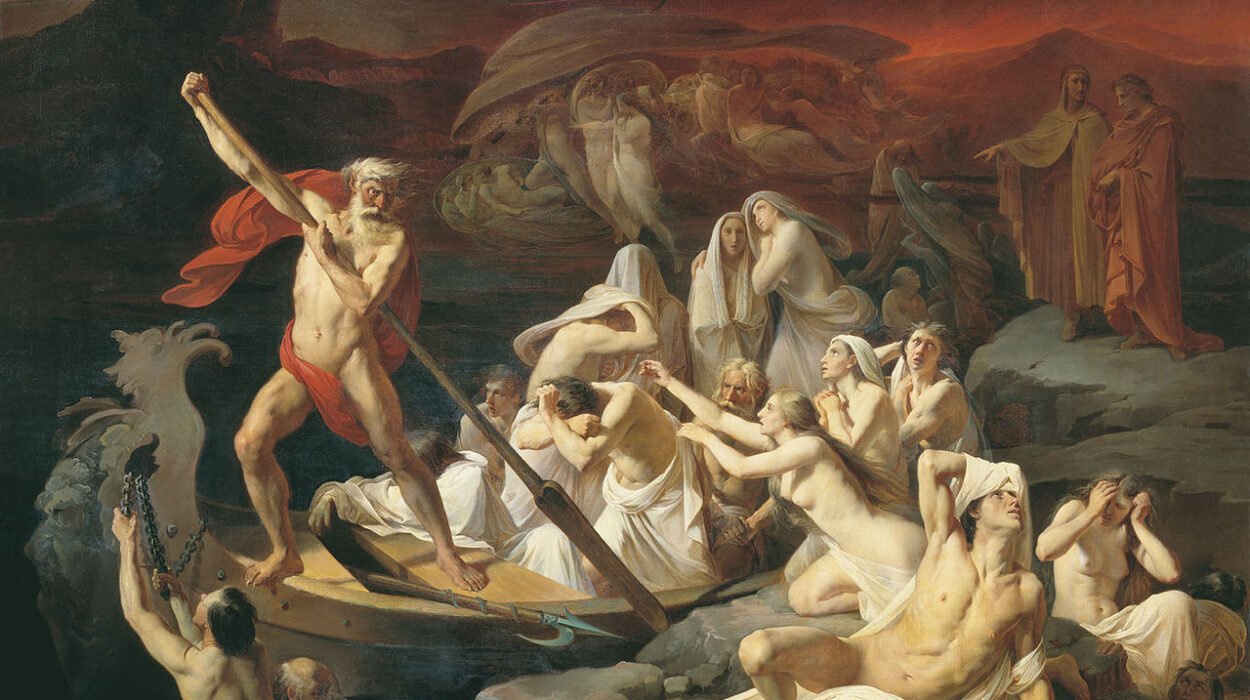Among the glittering pantheon of Greek mythology, few figures stand as prominently as Hera, the Queen of Olympus. She was not only the wife and sister of Zeus, the thunder-wielding King of the Gods, but also the embodiment of marriage, family, and queenship itself. To the ancient Greeks, Hera was both revered and feared—an immortal whose blessings could bring prosperity to unions and children, yet whose wrath could devastate entire kingdoms.
Hera’s story is not one of simplicity. It is a tale woven from loyalty and betrayal, power and vulnerability, devotion and fury. For while she embodied the sanctity of marriage, her own marriage to Zeus was scarred by constant infidelity. This contradiction made her one of the most emotionally complex deities of the Greek world—a goddess both nurturing and vengeful, radiant with dignity yet consumed by jealousy.
To explore Hera is to enter the heart of Greek mythology’s paradoxes. She is at once the protector of women and the persecutor of other women. She is both the upholder of order and the sower of strife. She is the eternal queen, her crown heavy with glory and resentment.
Origins and Divine Lineage
Hera was born to the Titans Cronus and Rhea, making her one of the six Olympian siblings alongside Zeus, Poseidon, Hades, Hestia, and Demeter. According to myth, her father Cronus, fearing a prophecy that one of his children would overthrow him, swallowed each child at birth. Hera, like her siblings, was imprisoned within her father’s body until Zeus, the youngest, forced Cronus to regurgitate them.
Thus freed, Hera and her siblings joined the battle against the Titans in the great Titanomachy, the war that shaped the cosmos. When the Olympians triumphed, Zeus divided the realms: himself as ruler of the skies, Poseidon of the seas, Hades of the underworld. Hera did not inherit a domain in the same sense, but her destiny lay in rulership nonetheless. She became the queen beside Zeus, her power expressed not through territory but through influence, authority, and divine majesty.
The Marriage of Hera and Zeus
The union of Zeus and Hera was said to be both sacred and tumultuous. According to one myth, Zeus courted Hera for three hundred years, disguising himself as a cuckoo bird shivering in the cold. Hera, moved by pity, gathered the bird into her arms—only for Zeus to transform into his true form and claim her. Despite his trickery, their wedding was celebrated with grandeur. The earth blossomed with flowers, and all the gods gathered to honor their sacred bond.
Hera, as goddess of marriage, should have enjoyed a union of stability. Yet she was wed to the most unfaithful of gods. Zeus’s countless affairs—with goddesses, nymphs, and mortal women—humiliated Hera and ignited her legendary jealousy. Unlike many goddesses, Hera did not turn her wrath directly upon her husband. Instead, she redirected it toward his lovers and their children.
This duality—her devotion to the sanctity of marriage and her unrelenting vengeance against those who threatened it—made her one of the most paradoxical figures in Greek mythology. She was the very embodiment of marriage yet forever trapped in a marriage that defied her values.
The Jealous Queen
Hera’s jealousy became the defining trait in countless myths. Her anger was not a fleeting emotion but a divine force that shaped destinies, punished nations, and echoed through generations. To the Greeks, her jealousy was not simply a flaw—it was the fire of a goddess who demanded respect, loyalty, and honor in a world where betrayal was constant.
Among her most famous targets was Heracles (Hercules), the greatest of all Greek heroes. Born from one of Zeus’s affairs with the mortal woman Alcmene, Heracles became the focus of Hera’s fury. She attempted to kill him in his cradle by sending two serpents, but the infant hero strangled them with his bare hands. Later, she drove him to madness, causing him to slay his own children, which set him on the path of completing his legendary Twelve Labors. Though Heracles eventually achieved immortality, Hera’s relentless persecution shaped his destiny.
Hera’s jealousy extended beyond Heracles. She tormented Io, a mortal maiden loved by Zeus, by transforming her into a cow and setting a gadfly to torment her endlessly. She pursued Leto, pregnant with Apollo and Artemis, forbidding any land on earth to grant her refuge, forcing Leto to give birth on the floating island of Delos. She opposed Semele, who was tricked into demanding that Zeus reveal his true form, which consumed her in fire.
In each tale, Hera emerges not only as a jealous wife but also as a force of divine retribution. Her vengeance was merciless, yet it revealed the power of a goddess who refused to be diminished, even in the face of Zeus’s authority.
The Protector of Marriage and Women
Yet to view Hera solely as a jealous goddess would be to misunderstand her. For the Greeks, she was far more than Zeus’s embittered wife. She was the divine guardian of marriage, childbirth, and the sacred bonds of family.
In city-states across Greece, Hera was worshiped as the ideal of queenship and the protector of women. Her temples were among the grandest in the Greek world. The Heraion of Samos was one of the earliest monumental temples ever built in Greece, and her sanctuary at Argos stood as a symbol of her importance. The Olympic Games themselves were mirrored by the Heraean Games, held in her honor with footraces for women.
To brides, Hera was invoked for blessings of fertility and harmony. To mothers, she was the protector in childbirth. Her festivals celebrated the union of man and woman, not as a mere contract but as a sacred bond watched over by the queen of heaven.
Hera’s wrath may dominate myths, but her worship reveals a softer side: a goddess of dignity, respect, and sanctity, upholding the values that bound families and societies together.
The Paradox of Power
Hera’s mythology reveals a profound paradox. On one hand, she is one of the most powerful Olympians, seated at Zeus’s side, wearing the crown of heaven. On the other hand, she is portrayed as reactive, consumed by jealousy, defined largely through her husband’s unfaithfulness.
This paradox speaks to ancient Greek attitudes toward women and wives. Hera was venerated as the goddess of marriage but trapped in a marriage that humiliated her. She was feared as a jealous figure but worshiped as a protector. She was the queen of Olympus, yet her myths often portray her as powerless against Zeus’s dominance.
And yet, her resilience cannot be denied. Hera’s wrath, though destructive, is also an assertion of her dignity. Her jealousy is not mere pettiness—it is resistance, a refusal to be erased in the face of betrayal. She was not content to be a silent consort. She demanded reverence. She enforced loyalty. She reminded gods and mortals alike that even the greatest of kings must answer to his queen.
Hera in the Trojan War
Hera’s role in the Trojan War demonstrates her ability to influence the fate of nations. When the Trojan prince Paris judged Aphrodite the fairest goddess, awarding her the golden apple over Hera and Athena, Hera’s wrath was sealed against Troy.
During the war, Hera fought relentlessly against the Trojans, manipulating events, aiding the Greeks, and even deceiving Zeus himself. In Homer’s Iliad, she distracts her husband by seducing him, allowing the gods to intervene in the battle. Her cunning and persistence ensured that the Greeks, not the Trojans, triumphed.
Here we see Hera not as a jealous wife but as a strategist, a goddess capable of swaying the balance of war. Her influence stretched beyond the personal into the political, shaping the destiny of entire civilizations.
Hera’s Symbols and Worship
As Queen of the Gods, Hera was often depicted with regal majesty. She wore a crown and carried a scepter, her presence commanding awe. Her sacred animals reflected her nobility: the peacock, with its resplendent feathers symbolizing watchfulness and immortality; the cow, representing nurturing motherhood; and the cuckoo bird, recalling her courtship with Zeus.
Her festivals, particularly in Argos and Samos, were grand events. Offerings of flowers, sacrifices of animals, and hymns of devotion honored her role as protector of marriage and society. Unlike other goddesses who embodied wildness or independence, Hera’s domain was civilization itself—the bonds of family, the dignity of queenship, the structure of order.
Hera’s Legacy in Culture
Hera’s legacy stretches beyond ancient Greece into art, literature, and psychology. Artists through the centuries have portrayed her as the majestic queen, sometimes stern, sometimes sorrowful, always regal. In Roman mythology, she became Juno, retaining her association with marriage and queenship.
In modern times, Hera has been reinterpreted through feminist lenses—as a symbol of the struggles of women bound in unequal marriages, as a figure of dignity amid betrayal, or as an archetype of the queen, asserting power in a male-dominated pantheon.
Her stories continue to resonate because they speak to universal themes: love and betrayal, loyalty and vengeance, dignity and humiliation. Hera is not a goddess of perfection but of complexity. She embodies the contradictions of human relationships, the tension between love and power, and the resilience of a figure who demands to be remembered.
The Jealous Queen as a Mirror of Humanity
To call Hera merely “jealous” is to oversimplify a goddess of immense depth. Her jealousy is the lens through which ancient storytellers expressed anxieties about marriage, fidelity, and female power. But within that jealousy lies the soul of a goddess who refused to be ignored, who insisted that her role as queen, wife, and protector be honored.
Hera is a reminder that even in myth, women were depicted not as passive but as powerful—though often in ways that revealed societal tensions. She was worshiped as the guardian of family, yet her own family life was chaotic. She was revered as a goddess of marriage, yet her own marriage was riddled with betrayal.
In her contradictions, Hera becomes profoundly human. She is not simply a divine ideal but a mirror of the struggles, sorrows, and triumphs that accompany love and power.
Conclusion: The Immortal Queen
Hera endures as one of the most fascinating figures of Greek mythology. She is the radiant queen crowned in majesty, the jealous wife scarred by betrayal, the protector of women, the tormentor of rivals, the strategist of war, and the embodiment of marriage. She is both nurturing and wrathful, dignified and vengeful, protective and destructive.
In her contradictions, Hera transcends the boundaries of myth. She becomes a symbol of the complexities of human relationships, the burdens of loyalty, the hunger for respect, and the struggle for dignity. She is not merely Zeus’s consort but a goddess in her own right, a figure who demands reverence, fear, and fascination.
The Greeks knew her as their queen of heaven, their guardian of marriage, their jealous goddess who punished betrayal. But perhaps, in the end, Hera’s greatest power was her refusal to be forgotten. She remains, eternally, the Jealous Queen of Olympus—a goddess as radiant as she is fearsome, as timeless as the myths themselves.






